Insights
Insights are compressed research bits that provide an outlook of how the future might evolve. They serve as a starting point to imagine new scenarios for the future.
Futures Design
Futures Design is a design method used to create future scenarios, with the goal of inspiring people, increasing their awareness of contemporary challenges and their willingness to act. The term Futures Design is intentionally phrased in plural, because it is not about predicting or forecasting “the future”, but rather to think about a variety of potential futures.
Signals of change
Signals are concrete and observable occurrences, like new technologies, behaviors, sociopolitical forces or services that show change or the potential of change.
-
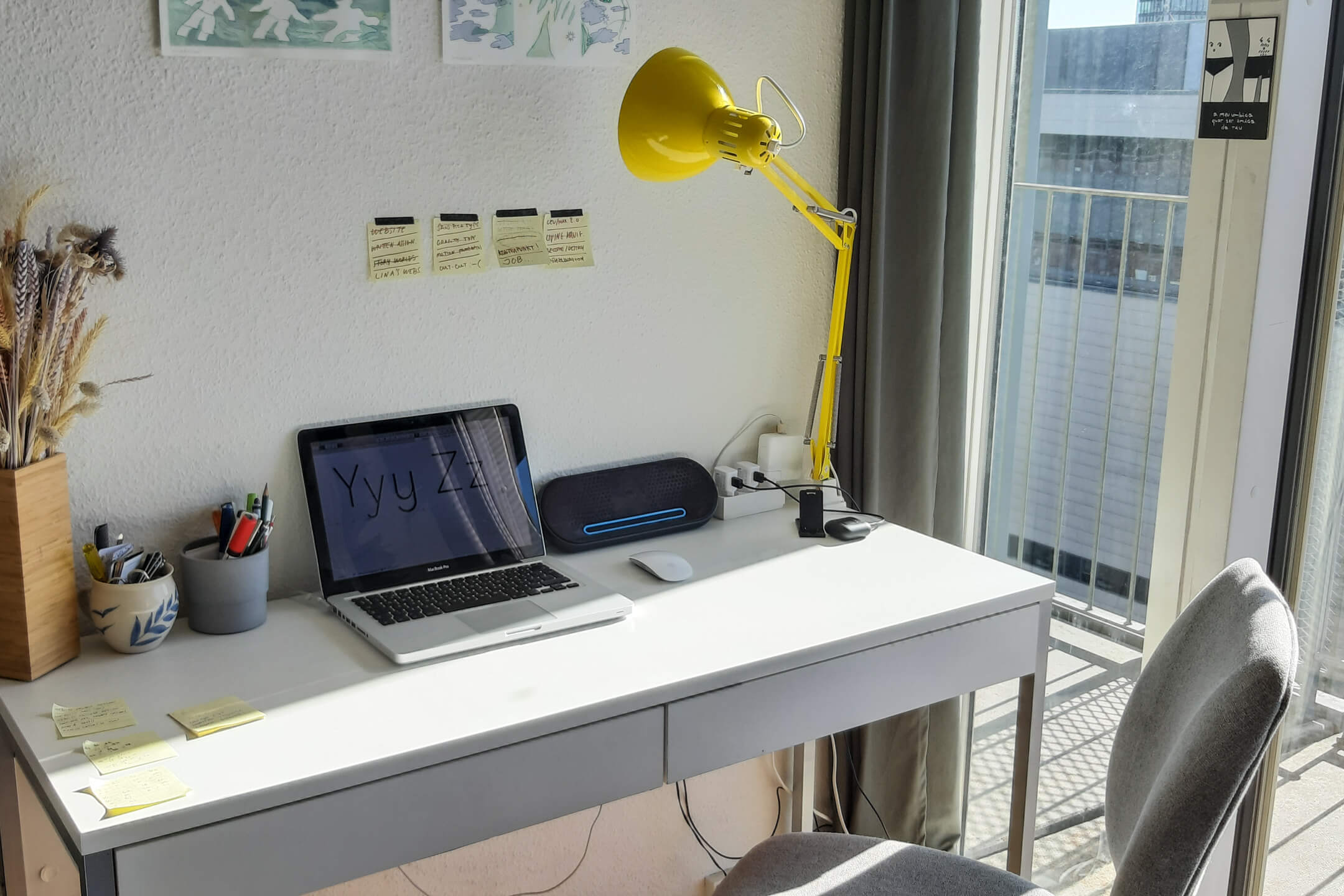
Insight 1:
The future remote worker -
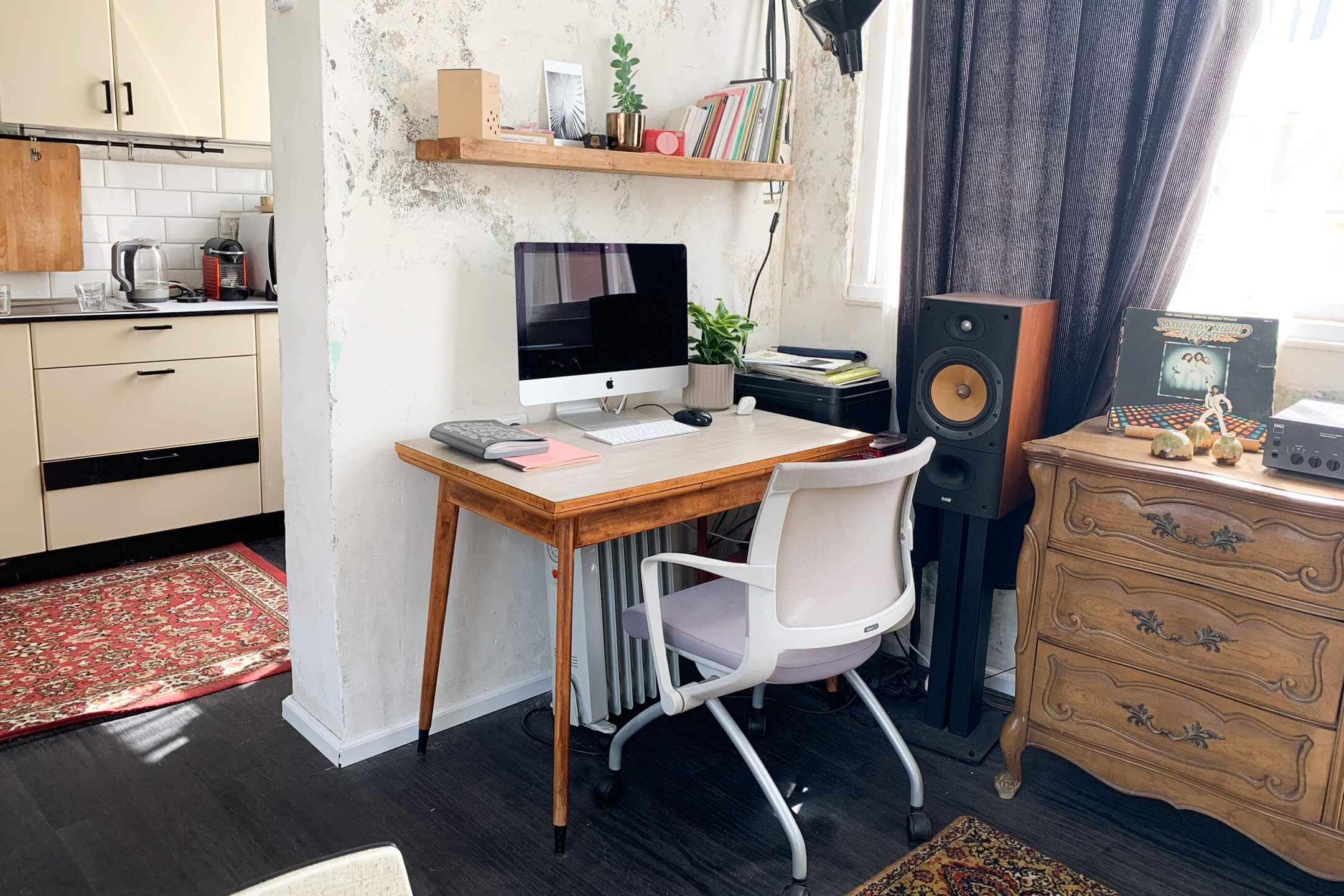
Insight 2:
The fluid and flexible future workspace -
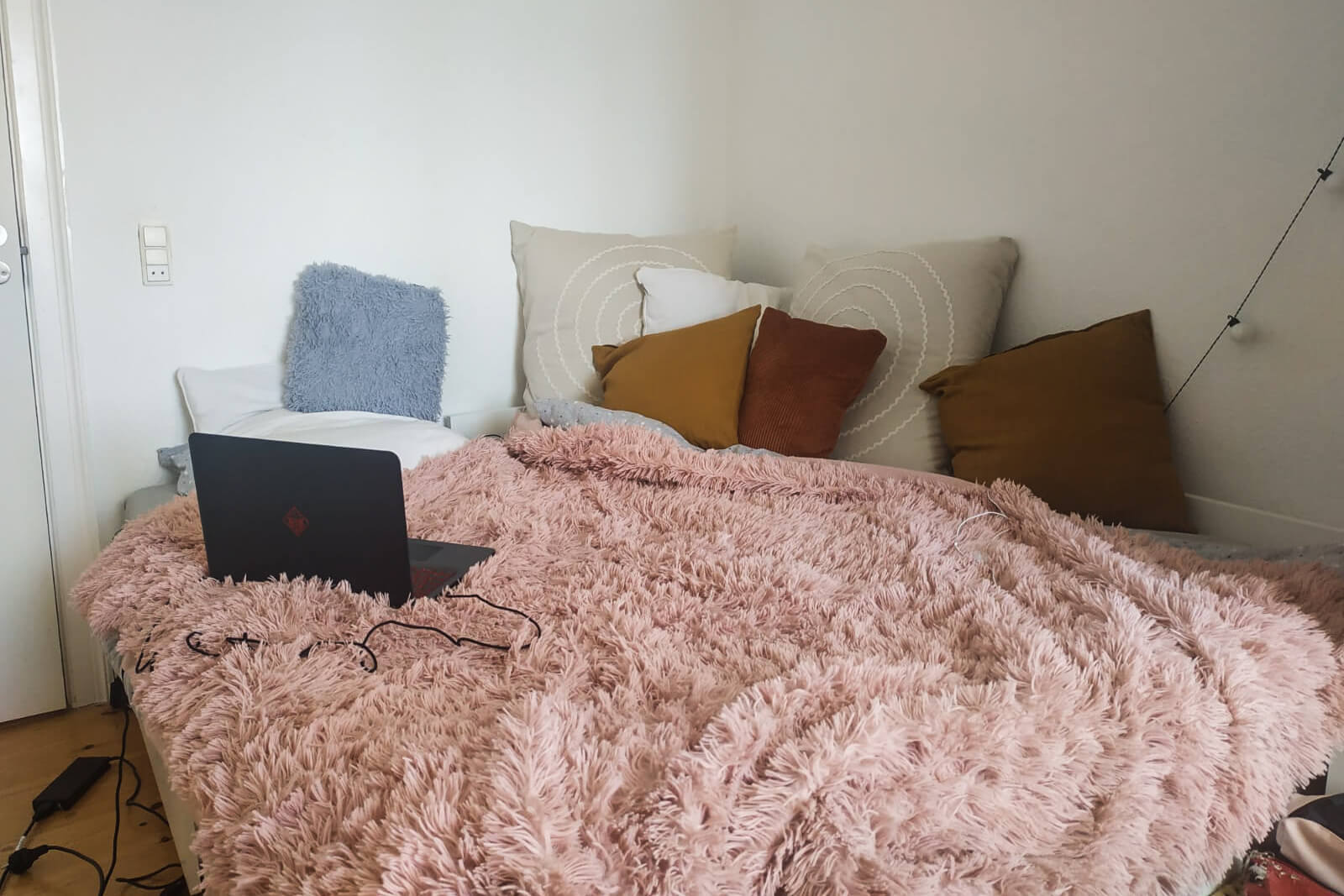
Insight 3:
When the home becomes the office -
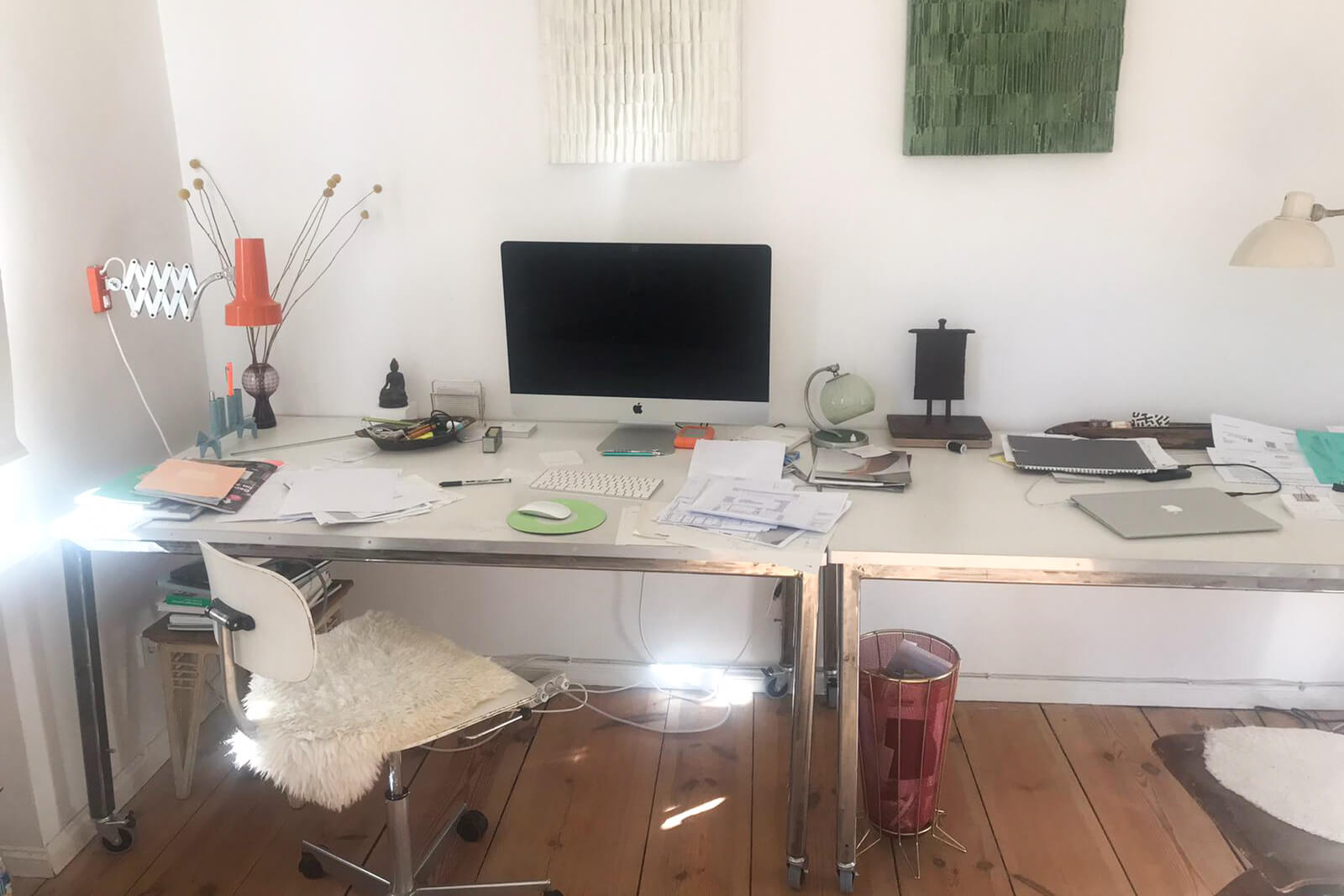
Insight 4:
Collaboration in the virtual workspace -
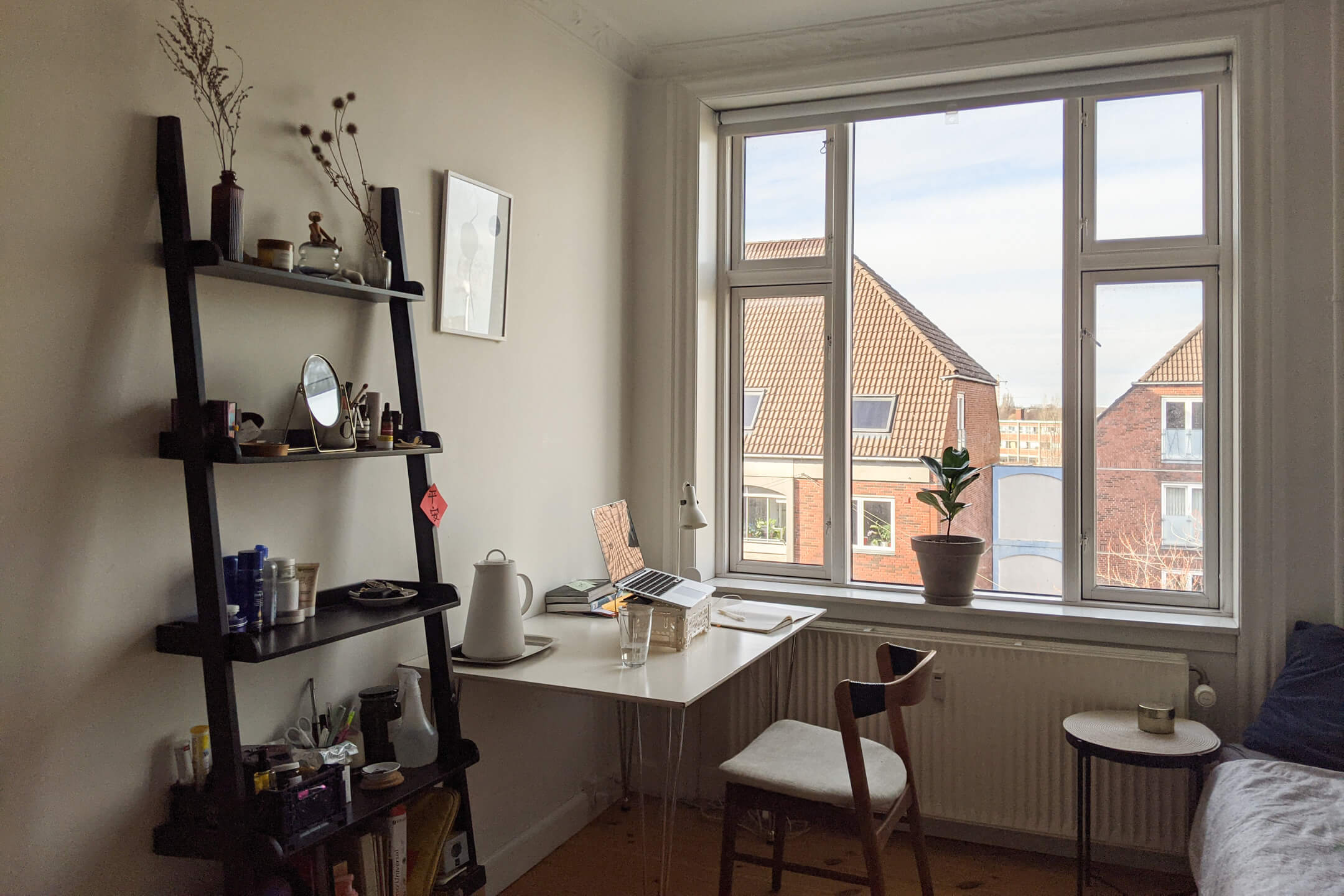
Insight 5:
Remote social interaction -
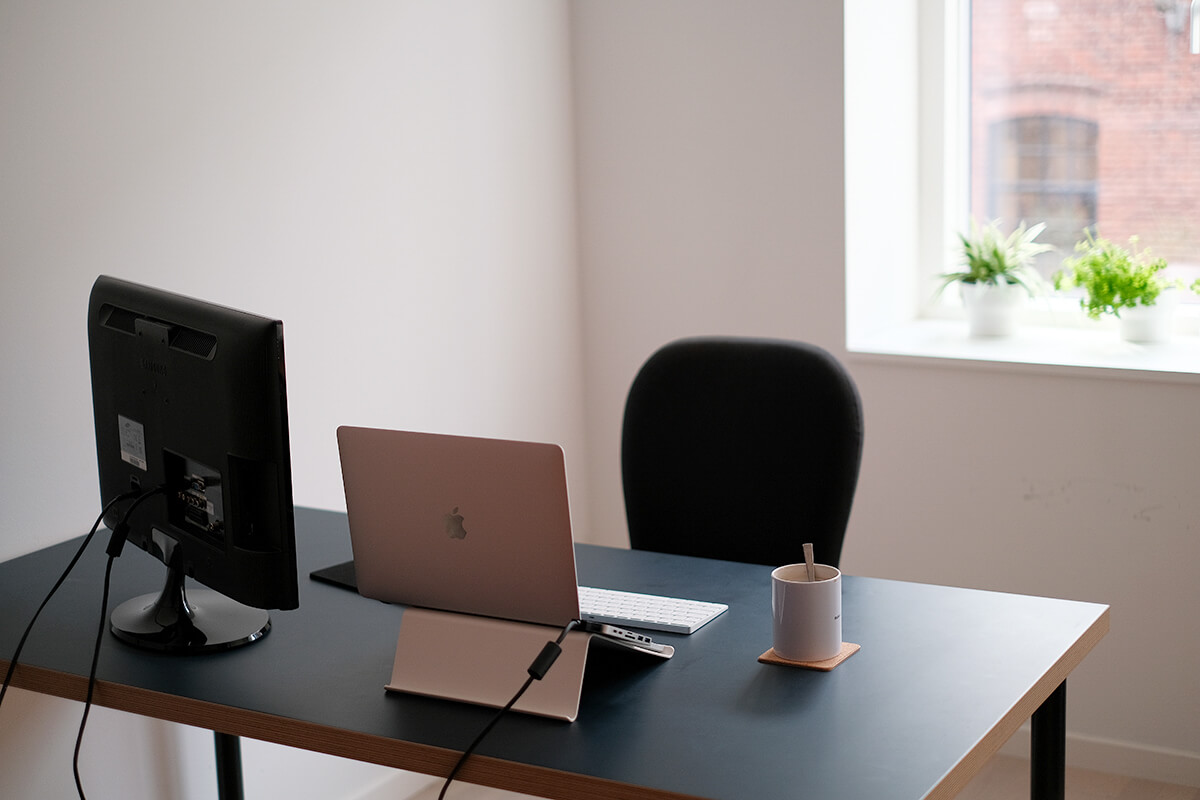
Insight 6:
Productivity when working remotely -
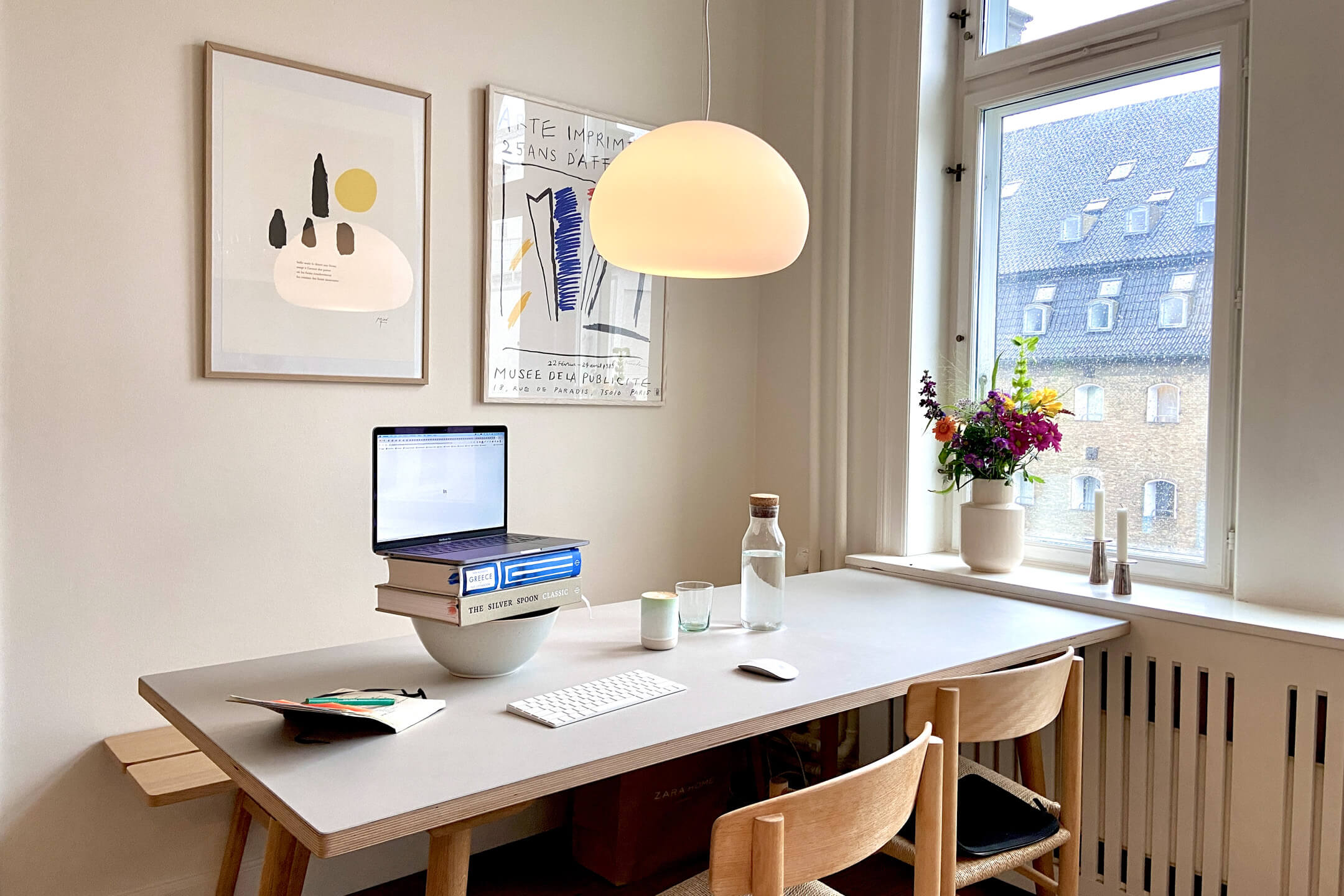
Insight 7:
Cross-locational competition -
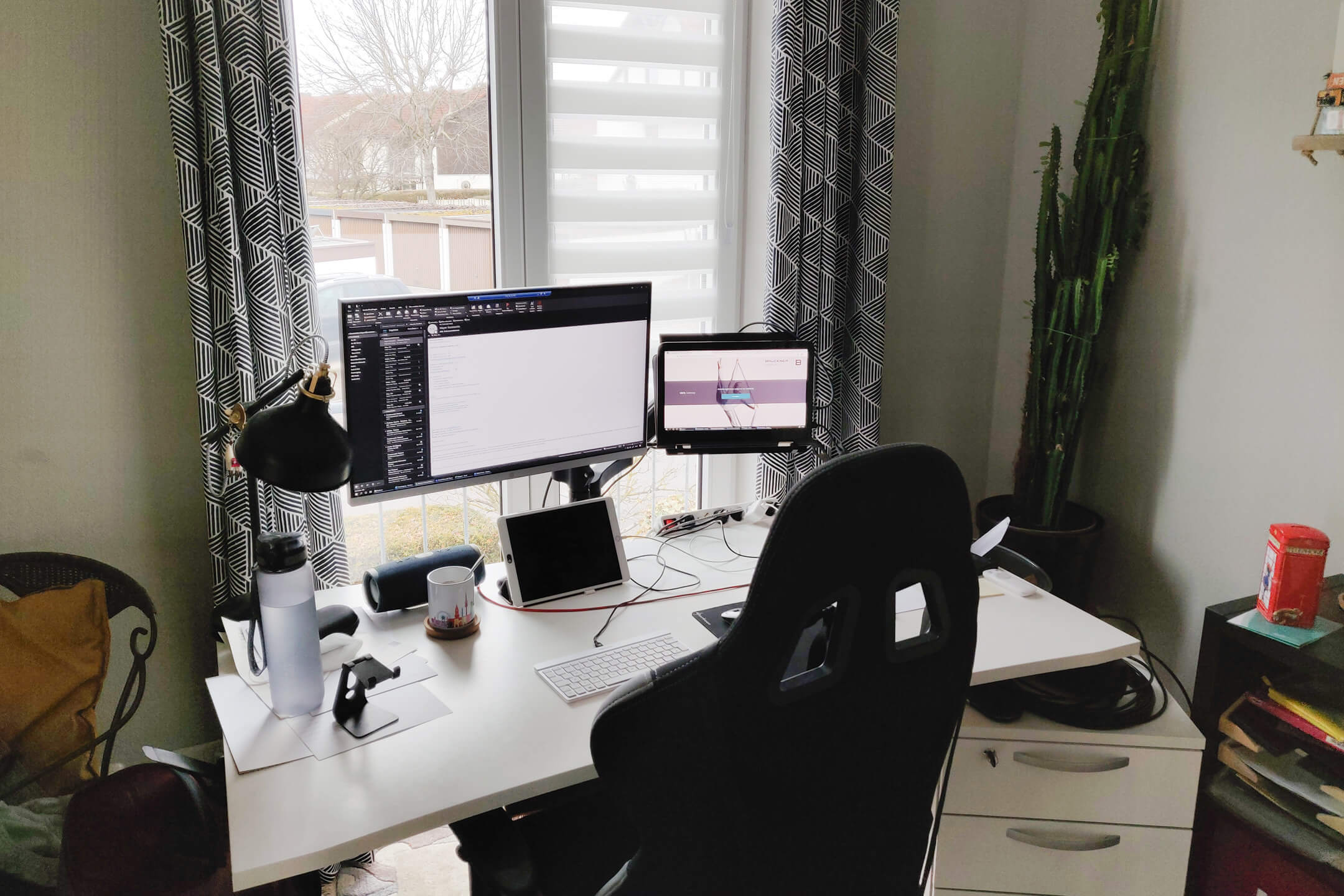
Insight 8:
The need for new laws and regulations
We are trying to move away from meetings and give people more focus time. That means that writing as a skill becomes more important. But I've always thought that writing is the secret super skill anyways, but now more than ever.
Partner at design studio Diesdas.digital Berlin, GermanyIt does center around US time, unfortunately. But being in the US, that works out for me.
Product Content Marketer at remote data analytics company Colorado, U.S.I always think about timezone privileges, because if you are in London for example you are super well positioned.
Senior Product Designer at audio streaming company Spotify Stockholm, SwedenI think the switch to written communication as the default and only doing meeting when necessary is a tremendous shift in making your daily workflow bullet proof. I think there is fantastic potential in that.
Partner at design studio Diesdas.digital Berlin, GermanyBeing global, that means folks are in different time zones. I am working very closely with this guy in Malta right now. And he accomodates for a U.S. schedule which is unfortunate because he works really late hours.
Product Content Marketer at remote data analytics company Colorado, U.S.I'm a pretty lucky guy that I can work from home. If the future is working from home that's just a small populations future. There are lots of people that make our life work that are out and about.
Senior Design Researcher at technology company IBM Vancouver, CanadaI think remote work carries a huge potential of self-fulfilment. It's not anymore just about being an employee of a company, but being a person again who is also working on something.
Partner at design studio Diesdas.digital Berlin, GermanyDiscipline with documentation and communication in general are very important skills in a remote work situation. We need to make sure that another person that picks up someone else's work from a different timezone is able to follow.
Senior Product Designer at audio streaming company Spotify Stockholm, SwedenWhen we are working remotely we are all kind of the same. I feel we are more equal. It doesn't matter where people are from or how old they are.
Director of business analysis at CIBC bank Toronto, CanadaWe defined really short co-working hours where people need to be available. That's from 11:00am to 12:30am and then from 1:30pm to 3:00pm. So one and a half hours in the morning and in the afternoon. And outside of these in total three hours, everyone can work whenever they want to.
Partner at design studio Diesdas.digital Berlin, GermanyI think asynchronous collaboration, this whole mindset that you work the time that you have during the day not the other way around, do the things you have with the time left, that's one of my biggest hopes. That there will be a shift of mindset.
Senior Product Designer at audio streaming company Spotify Stockholm, SwedenIt's important to acknowledge how much of a privilege it is to be able to work remotely. In our bubble it's easy to take that for granted, but if you look at the whole society - how many people really have that chance?
Partner at design studio Diesdas.digital Berlin, GermanyI didn't seek out the company because it was fully remote, but once it became a reality when I was hired I realized what I was missing.
Product Content Marketer at remote data analytics company Colorado, U.S.A big switch when going remote is to work more asynchronously, to write more stuff down, to have fewer meetings, have more focus time and therefore being more flexible in how to structure the day. It's not about just replacing everything with meetings.
Partner at design studio Diesdas.digital Berlin, GermanyI my job were fully remote, my dream would be to work less hours, maybe 12 hours a week instead of 40, and I think I would enjoy being a nomadic worker. Hopefully the time difference won't be too big of an issue. But travelling would be great. Also I would probably do some longterm vacations where. I really miss travelling I guess. I think that would be so fun.
Senior Design Researcher at technology company IBM Vancouver, CanadaWe completely abandoned the concept of people being available during certain time slots. It's entirely open. As long as you coordinate with the people on your project, as a company we don't have any expectations regarding availability, we don't care. You can work whenever you work best, work at night if you want to.
Partner at design studio Diesdas.digital Berlin, GermanyI think people will change their relationship towards work, their work will less dictate their lives, that's one of the hopes that I have.
Senior Product Designer at audio streaming company Spotify Stockholm, SwedenI think one of the challenges is also that people have different knowledge of tools. Technically literate people definitely have an advantage. But not everyone is willing to take the time and learn the tools properly. I'm a bit afraid that people who don't do that will be a bit excluded or left behind. Tool knowledge is more important now, so that everyone can participate at the same level.
Partner at design studio Diesdas.digital Berlin, Germany
Insight 1:
The future remote worker
Remote work will cause a shift in the importance of various job qualifications. Writing and other asynchronous communication skills will be needed in order to work in a distributed team. Language skills, familiarity with a culture and being in the same time zone as other colleagues will become more important hiring criteria. Remote workers will also need to keep adapting to constantly changing digital tools. This shift in what is required of workers will lead to some people thriving, whilst threatening to leave behind those who struggle in a remote work environment.
In addition to this, we might see an increasing divide between people whose jobs allow them to work remotely and those whose jobs are bound to a specific location.
Nonetheless, remote work could offer opportunities to those who have previously had less privileges in a location-dependent job market, for example people with disabilities, people unable to relocate or with caregiving responsibilities.
When it's possible to get back to offices I think there will be a divide between the people that thrived working remotely and those that prefer working in an office. I think that will split companies.
Partner at design studio Diesdas.digital Berlin, GermanyIt was kind of funny, because we would just use our phone and see how many bars we had as a preview of how the signal booster would perform. But I have since found an app, it's called Gaia GPS.
Product Content Marketer at remote data analytics company Colorado, U.S.Some month ago Spotify officially introduced this initiative called "Work from anywhere", what means that we are aiming to be a distributed first company. That means that collaboration has to be asynchronous. I don't think that they will shut down all the offices, but they will become more like hubs, so the physical workspace will be very flexible and dynamic.
Senior Product Designer at audio streaming company Spotify Stockholm, SwedenI have Bluetooth AirPods, but I choose to use the wired earbuds because it keeps me in my workspace. I am not wandering around, going and grabbing food from the fridge...
Product Content Marketer at remote data analytics company Colorado, U.S.It excites me that I could go off and live on a tropical island and just keep working for my company and have a comfortable life. I could move somewhere and have no worries about keeping my job, that would be really cool.
Senior Design Researcher at technology company IBM Vancouver, CanadaI don't see myself ever working in an office again regularly.
Partner at design studio Diesdas.digital Berlin, GermanyIt all revolved around making sure that we were in a place where we had good wifi reception.
Product Content Marketer at remote data analytics company Colorado, U.S.I think it would be interesting if the office would be rather a place for gathering and social life instead of for working.
Partner at design studio Diesdas.digital Berlin, GermanyIf you are from a country with a weak passport it's not that easy to travel and have this free nomadic life. This whole "Working from anywhere" is sold as a benefit - but in reality - is it for everyone?
Senior Product Designer at audio streaming company Spotify Stockholm, SwedenWe've cut our office space in half. We had two floors and we have shut down one, because we figured that we would never go back to the situation where everyone is at the office at the same time.
Partner at design studio Diesdas.digital Berlin, GermanyReal estate for companies is one of the worst costs they have, I wish they would save this money and give it back to their employees.
Senior Product Designer at audio streaming company Spotify Stockholm, SwedenThe van living was exhausting. There was this constant stress around "Are we going to get enough signal to have a productive workday?". Those are things that you don't really have to think about when you are in a normal house. There was definitely a mental tax to moving around and having to adapt all the time.
Product Content Marketer at remote data analytics company Colorado, U.S.We had an employee who was travelling full time. He was working out of a library pre pandemic.
Product Content Marketer at remote data analytics company Colorado, U.S.
Insight 2:
The fluid and flexible future workspace
Many types of work will increasingly occur in the digital sphere: in the virtual space of computer interfaces, network connections and online collaboration tools. The workplace thus loses its traditional connection to the physical space and will become more fluid. Temporary workplaces can exist anywhere – at home, in co-working spaces, in public places like cafes or libraries.
With many people expected to choose a working from home solution, many companies will reduce the size of their offices or stop inhabiting them altogether. Employees who will still have the option of working from a physical office every so often, will most likely have to adapt to hot desking rather than rely on a specific seating plan.
Through remote work, living in rural areas and other remote places will also become more accessible as long as the internet infrastructure is available. People’s place of residence will become as flexible as the workspace.
I never used to be at home before, just a couple of hours in the evening when coming back from the office. Now that I'm actually home I'm trying to make my home more comfortable. I'm buying new things for the kitchen and cook more.
Director of business analysis at CIBC bank Toronto, CanadaWe are a bit spoiled at Spotify, because we've gotten everything we need to work from home. Anytime of equipment you could require and need to perform best. For example a screen, a chair, a desk... So in that regard I haven't had any issues with working from home.
Senior Product Designer at audio streaming company Spotify Stockholm, SwedenWhen working from home I've noticed work-life-balance is much harder.
Senior Design Researcher at technology company IBM Vancouver, CanadaMy office is my bedroom, so I probably spend 90% of my time in my bedroom at the moment.
Partner at design studio Diesdas.digital Berlin, GermanyIt's easy to take advantage of the fact that people are home all the time. So it happens that people are being contacted in the evening or on weekends.
Director of business analysis at CIBC bank Toronto, CanadaI invested quite a bit in my home-office set up. I never used to have a desk at home, because I always worked from the office. Now I have a nice desk, a good screen and a good camera.
Partner at design studio Diesdas.digital Berlin, GermanyAt home I definitely miss the contact with other people, especially the casual encounters and quick conversations you would have during a day. That can't be replaced. I'm quite a people driven person, so I love being around others.
Senior Product Designer at audio streaming company Spotify Stockholm, SwedenI have an exercise bicycle in the basement, so when I feel really stiff I use it for a little bit to get my blood circulating.
Director of business analysis at CIBC bank Toronto, CanadaI'm very excited to think about how the house dynamic is going to change a lot. If I have a family by 2030 I wonder how many work pods I need to have at home, in case school and work are going to be remote. That will also change family dynamics.
Senior Product Designer at audio streaming company Spotify Stockholm, SwedenI felt the first two month of working from home were very frustrating and hard, I missed my friends at work and taking the bus in the morning and have some time for reading. But I started to get used to it, and nowadays I think it's kind of nice to work from home.
Senior Design Researcher at technology company IBM Vancouver, CanadaYou know what I don't like? Sometimes I get a little bit embarrassed, because some people have beautiful houses and then they're online and then they have this beautiful background of this beautiful room that they're in.
Director of business analysis at CIBC bank Toronto, CanadaWe've all been in Zoom meetings where it either wasn't necessary that we were in them or they're not the most excititing and it's really easy when you work from home to multitask and work on something else. I like to be as involved and present as I can in meetings, even though Zoom fatigue is real. It's extra effort, but it pays off.
Product Content Marketer at remote data analytics company Colorado, U.S.If you are at home people can reach you anytime. So at the end of every week I block a lot small parts of my following week so I have some thinking slots blocked. I think it is important to take the ownership of your calendar, so you don't waste time.
Senior Product Designer at audio streaming company Spotify Stockholm, SwedenWe supported people financially in setting up their home-offices.
Partner at design studio Diesdas.digital Berlin, GermanyOn the weekends, every time I'm in my room and see my desk and monitor I start thinking about work. I feel like I just want to put a sheet over my desk. Especially in the beginning it was so hard to escape work.
Senior Design Researcher at technology company IBM Vancouver, CanadaI try to separate work from life or free time by leaving my laptop in the basement when I'm done working.
Director of business analysis at CIBC bank Toronto, Canada
Insight 3:
When the home becomes the office
Are you “working from home” or “living at work”? In order for the permanent home office to become a realistic option, our homes need to adapt: new builds will need to be conceived and designed with this in mind.
A designated office room won't be available to everyone; lack of space may therefore be facilitated by functional and multi-purpose furniture.
Removing the separation between work and free time will make “switching off” increasingly challenging; as commuting becomes less of a necessity, transition times between work and other activities will also be lost.
These new working conditions will have substantial physical and mental health implications: working and sleeping in the same environment will for example affect sleeping patterns. With the absence of commutes or even just transitioning between office rooms, physical exercise will need to be actively integrated in one's work life in order to maintain a balanced lifestyle.
I find it very helpful when other people's camera is on in meetings. I want everyone to participate in be engaged in a meeting. But at the same time I know how tirering it is to keep your camera on the entire day.
Senior Design Researcher at technology company IBM Vancouver, CanadaI think collaboration tools don't matter as much as people think. I think the culture that you have as a company, how you communicate with each other is more important than the tools that you use.
Partner at design studio Diesdas.digital Berlin, GermanyWhat's so interesting about Zoom is that it's not like it's anything new or unique it's just the right market at the right time.
Product Content Marketer at remote data analytics company Colorado, U.S.It's really hard to onboard new people when you're online.
Senior Design Researcher at technology company IBM Vancouver, CanadaI see some problems with miscommunication in meetings or chat when working remotely. Chat should just be used for one way messages, but work discussions should be done through talking and not text messages. So, no more discussions on chat.
Director of business analysis at CIBC bank Toronto, CanadaFolks are coming from different contries. You need to understand that there are different cultural boundries and don't assume malice because people do things differently.
Product Content Marketer at remote data analytics company Colorado, U.S.I think remote work is going to be pretty big. I'm sure a lot of travel will go down for like meetings, it's just such a waste of money and gas. I just hope we will see some advances in video calling. This is not the end of what Zoom's product will be.
Senior Design Researcher at technology company IBM Vancouver, CanadaWe have always worked remotely with our clients, so it's not a completely new situation in some regards.
Partner at design studio Diesdas.digital Berlin, GermanyI think the collaboration tools that we are using are enough. I can't imagine a different tool that we could need.
Director of business analysis at CIBC bank Toronto, CanadaI have some biases against background filters, I think they look weird, because they don't pick up on something.
Senior Design Researcher at technology company IBM Vancouver, CanadaAfter many years they are talking about mentorship again. About setting up a one on one with somebody who they think does really good work.
Director of business analysis at CIBC bank Toronto, CanadaWe are trying to work more asynchronously. We write more stuff down and when having fewer meeting then timezones also matter less.
Partner at design studio Diesdas.digital Berlin, GermanyWith working from home I feel this tension of how do I look professional.
Senior Design Researcher at technology company IBM Vancouver, CanadaSometimes I use as a video call background a photo of the pub were my team and me used to go.
Director of business analysis at CIBC bank Toronto, CanadaIf we were hanging out in some room it would be so much more fun, you could see my expressions and hand movements and pick up on things that are a lot less formal. It's a bit frustrating to have to do that with technology.
Senior Design Researcher at technology company IBM Vancouver, CanadaYou won't be a successful remote company if you try to recreate your office virtually. That's a short-sided notion.
Partner at design studio Diesdas.digital Berlin, Germany
Insight 4:
Collaboration in the virtual workspace
When working remotely, collaboration will take place entirely via digital channels. Coworkers will need to adapt to communicating across different time zones and cultures. Challenges like screen fatigue or misunderstandings due to the inability of reading facial expressions and body language will need to be addressed.
Although collaboration will be challenging if only experienced through virtual means, an entirely digital workspace will also offer new possibilities. Self image will no longer be limited to the physical sphere: Filters, digital makeup, virtual backgrounds and digital avatars could become integrated into work culture. In-line with this, virtual offices will replace physical environments, providing three dimensional spaces fit for online engagement.
In a digital work environment gamification could also become more prevalent in order to increase the engagement of remote workers.
Our company is using the concept of "workations", where people can take a vacation somewhere and then extend it for some weeks and just work from there.
Partner at design studio Diesdas.digital Berlin, GermanyBecause of covid I chat with two people everyday regularly. And then we end up chatting for like 30 minutes. I feel so good when we do that.
Senior Design Researcher at technology company IBM Vancouver, CanadaI think a big part of feeling connected are those face-to-face-meetings. I always keep my camera on for that reason.
Product Content Marketer at remote data analytics company Colorado, U.S.When my co-workers went home for the holidays they suddenly found themselves sharing a co-working space with however big their family was.
Product Content Marketer at remote data analytics company Colorado, U.S.Technology people are maybe a little bit more introverted, they don't like turning their camera on, so when I have a meeting with my 24 people I can't see them. It's hard to talk and not get this feedback of seeing people. But I don't want to force them to turn their video on. But I think the lack of feedback and body language can lead to miscommunication.
Director of business analysis at CIBC bank Toronto, CanadaWe had some cross-company events, where we met in this virtual reality place and meet people. They invested a lot of effort to make it really nice.
Senior Product Designer at audio streaming company Spotify Syockholm, SwedenWith remote work when you get a group together online it's helpful to create more explicit agreements of how to behave around each other. I think these social contracts are more important online. It should happen in person too, but maybe it's more needed now. In remote meetings there need to be a bit more structure on how to behave, because it's so hard to know how to behave online.
Senior Design Researcher at technology company IBM Vancouver, CanadaI have a bit of social anxiety, when I am at the office in big meetings with 20 or 30 people, I feel really nervous. In this digital environment now, I'm in big meetings but I don't feel social anxiety from being there.
Director of business analysis at CIBC bank Toronto, CanadaI think relationships with colleagues became a little bit more robotic, you always have to schedule a time to talk to someone. It's less natural and it feels more constrained and restricted.
Senior Product Designer at audio streaming company Spotify Syockholm, SwedenI feel like there is the pressure to be more charming online or make a good impression through different ways. You need to do more.
Senior Design Researcher at technology company IBM Vancouver, Canada
Insight 5:
Remote social interaction
Remote work will drive social interaction to take place more and more online. Working within a virtual office and using digital communication tools will entail social contact to be less spontaneous; more chance-based encounters will need to be actively encouraged, for example through digital matching tools, that help break down barriers between remote workers.
Nevertheless, there the opportunity to familiarise oneself with colleagues and co-workers offline could keep existing. In the case of companies keeping a physical office, their function will likely shift from being a workplace, to a venue used primarily for socialising and establish a sense of belonging. Company retreats or virtual team building events could make up for lack of physical offices and the consequent lack of human interaction.
When the office is swapped for a co-working space, the other workers there become one’s main social contacts while working, instead of one’s actual colleagues.
Working from home has definitely made me more upset at our general work culture and capitalist knowledge economy. If I had my own company we would work three days a week for 12 hours a week, like that's it.
Senior Design Researcher at technology company IBM Vancouver, CanadaIf anything I may have been less productive because I showed up to the office and equated my presence with actual productivity. When you trust your employees, I think that they reciprocate that trust with really productive work.
Product Content Marketer at remote data analytics company Colorado, U.S.I'm not a believer of an 8 hour working day. I really try to think about a shorter working day, where I can be more effective.
Senior Product Designer at audio streaming company Spotify Stockholm, SwedenBefore the pandemic hit, the fear of having people working from home was always that they wouldn't work and get things done, but I think the reality is the opposite: People are working too much and just don't stop. They are too productive.
Partner at design studio Diesdas.digital Berlin, GermanyIn the office you kill time here and there, but at home it's harder to take a break. Every time I take a break I feel so guilty about it.
Senior Design Researcher at technology company IBM Vancouver, CanadaIn the knowledge economy, work and life is so meshed together, I always have to prepare myself mentally for the following week. And it feels there is nowhere to bill my time for my mental anxieties.
Senior Design Researcher at technology company IBM Vancouver, CanadaIf you're monitoring an employee you should be monitoring their productivity and if you're not able to do that in a clear way you have a problem with your company. If you're having to stoop to the level of monitoring your employee via camera, you're in their home and I think that is crossing the line.
Product Content Marketer at remote data analytics company Colorado, U.S.I'm having more trouble staying focused when working from home. But I try to be forgiving with myself.
Senior Design Researcher at technology company IBM Vancouver, CanadaI think the expected workload per day has increased, because you're not commuting and because you're at home with fewer distractions. I think I couldn't achieve the workload that I'm now used to, in an office environment anymore.
Partner at design studio Diesdas.digital Berlin, GermanyI guess what worries me is that the digital tools that we are given are increasing our ability to work a lot. And it's frustrating to see that all these new tools are making us work better and faster and 8 hours mean that we can do "this" much now. Some years ago we could maybe do two of these things, now we can do like 300 things in 8 hours. I'm just worried that it will keep accelerating and keep growing without companies wanting to slow down.
Senior Design Researcher at technology company IBM Vancouver, CanadaIf you are able to work from anywhere, any time... sometimes if you are a very productive worker that means you're working everywhere at everytime.
Product Content Marketer at remote data analytics company Colorado, U.S.I'm realising now that I'm only doing meaningful work from 11am to 3pm. But I still have to show my organisation that I'm working 8 hours a day.
Senior Design Researcher at technology company IBM Vancouver, CanadaYou kind of minimize the excuse for not being able to get to it immediately if you are not in the office, because your office is whereever you are.
Product Content Marketer at remote data analytics company Colorado, U.S.I feel when working from home there is more pressure to always be working. I constantly have to track my time very closely. It's an uncomfortable feeling to have your value directly tied with time rather than an outcome.
Senior Design Researcher at technology company IBM Vancouver, Canada
Insight 6:
Productivity when working remotely
What does it mean to be productive? Remote work reinforces the idea that productivity signifies delivering tasks instead of simply being present at the office.
Debating the meaning of productivity could challenge existing structures such as the most common eight-hour workday, or the time of day during which work is usually carried out.
This debate is especially relevant seen as many people report higher productivity without the distractions of the physical office.
Digital time tracking will be a common tool to keep productivity in check. This might cause remote workers to struggle with self-exploitation or the added responsibility of having to prove that they are in fact delivering their tasks.
The use of digital productivity tracking tools also asks for new regulations preventing issues around surveillance. Hence, in the context of the remote workplace, trust between employees and management will need to be fostered and consolidated.
This new remote work situation opens up the possibility to hire employees from anywhere. So why should we constrain us to hire people living close to the office?
Partner at design studio Diesdas.digital Berlin, GermanyI don't think I'm very worried about the pool of people that are eligible for my job to grow. I don't know why. Maybe because design research is like a small thing, so I feel comfortable that I'm valued in lots of places.
Senior Design Researcher at technology company IBM Vancouver, CanadaI think cultural and proximity based factors will still be relevant in a hiring situation.
Partner at design studio Diesdas.digital Berlin, GermanyI think it would be exciting if we could get more diverse people from outside of Vancouver. We have quite a tech bubble of people here. Our company is not so diverse, we very much represent what Vancouver looks like. That's usually young, white and Asian people. It would be great to get some new people who didn't go to our local universities that bring new thinking and cultures. At the same time it would be also awesome to get to know them in person, too. It would be so cool if organisations instead of spending the money on the office like cool get togethers and vacations.
Senior Design Researcher at technology company IBM Vancouver, CanadaIf you can hire people from anywhere there is the possibility to work with better people.
Partner at design studio Diesdas.digital Berlin, Germany
Insight 7:
Cross-locational competition
Workers applying for the growing number of location-independent jobs will have to compete with the entire global workforce. This could lead to lower wages if companies try to exploit varying work ethics and policies in different countries. On the other hand, higher paying jobs will become available to a more diverse group of qualified workers who would otherwise not have had these opportunities.
Companies may also prioritise employing freelancers over full-time contractors, given how the increasing remote working conditions will apply to both. For remote freelancers gig economy platforms will play a large role: Many freelancers will have to compete for each job individually, paying close attention to their client ratings and productivity scores which will add value to their profiles.
Because location will lose relevance, companies will need to offer competitive advantages in order to attract “top-talent” from all over the world.
I think adjusting the salary based on someones location is kind of shitty. I mean why would you punish people for living in a cheaper area and give them a lower salary? I would say you have to set salaries based on the value that people create and what your financial structure supports.
Partner at design studio Diesdas.digital Berlin, GermanySpotify has a very fair way to assess salaries, to make sure that we have the correct pay according to the benchmarks. But if you compare what a designer makes in Sweden versus the top benchmark of Brazil, you can hire four or five designers with the salary of one designer. My biggest concern is to make a fair field for everyone.
Senior Product Designer at audio streaming company Spotify Stockholm, SwedenIt does look really shiny and cool, but that's not to say that there won't be considerations and technical challenges a company has to go through.
Product Content Marketer at remote data analytics company Colorado, U.S.I have very ambivalent feelings about the fact that remote companies could hire employees from anywhere. I have some very talented friends that could not consider moving to a different country, because they have families for example. For them this could be an amazing opportunity. On the other hand I see the risk of companies starting to hire workforces from cheaper countries. I think that's a debate that has to be happening.
Senior Product Designer at audio streaming company Spotify Stockholm, SwedenOk, I have this employee that we are going to be looking to hire from the Netherlands and then we also have another candidate who is from South Africa and another candidate from New York. Well, that's three different potential tax implications, three different healthcare situations, different costs of living... Once you want to take advantage of the benefits of being able to hire from the global pool you do have those logistical considerations.
Product Content Marketer at remote data analytics company Colorado, U.S.The personal choice of people, like where they live, shouldn't affect their salary.
Partner at design studio Diesdas.digital Berlin, GermanyThe downside could be that employees won't have the opportunity anymore make this life-changing experience of moving to a new country and get to know the culture.
Senior Product Designer at audio streaming company Spotify Stockholm, Sweden
Insight 8:
The need for new laws and regulations
The rise of remote work has placed greater emphasis on many areas where laws and regulations are in need of revision, and new legislations will consequently have to be drafted.
Many of the issues related to remote work, such as increased global competition, outsourcing of jobs, inadequate tax systems and bureaucratic hurdles, are in need of global solutions and will need to be addressed by multiple countries together.
Remote work could lead to individualization of workers through increasing competition, and the reduced cohesion within teams, thus exacerbating the dangers of precarious work conditions. Workers and unions will have to find new ways of organising around shared interests in an individualised work environment. New measures might be needed in order to protect remote workers from companies trying to exploit a lack of unified legislation.